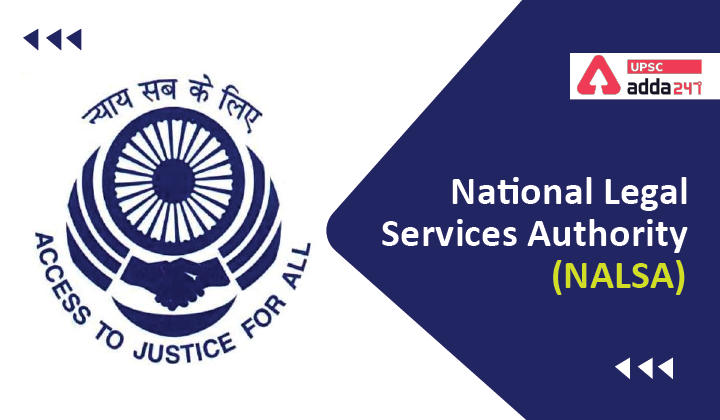Table of Contents
National Legal Services Authority (NALSA)- Relevance for UPSC Exam
- GS Paper 2: Indian Constitution- Statutory, regulatory and various quasi-judicial bodies.

National Legal Services Authority (NALSA)- Context
- Recently, the Minister of State for Social Justice and Empowerment informed that National Legal Services Authority (NALSA) does not maintain any specific data so as to indicate in how many cases victims of atrocities against SCs and STs were provided legal services.
- Section 12 of the Legal Services Authorities Act, 1987 empowers NALSA to provide free legal services to a member of Scheduled Castes or Scheduled Tribes irrespective of their income.
Raising Legal Age of Marriage for Women
National Legal Services Authority (NALSA)- Key Points
- Background: In 1987, the Legal Services Authorities Act was enacted by the Parliament, which came into force on 9th November, 1995.
- NALSA Act 1987 aims to establish a nationwide uniform network for providing free and competent legal services to the weaker sections of the society.
- About: The National Legal Services Authority (NALSA) has been constituted under the Legal Services Authorities Act, 1987 to provide free Legal Services to the weaker sections of the society.
- NALSA Patron-in-Chief and Chairman: The Chief Justice of India (CJI) is the Patron-in-Chief and the Senior most Hon’ble Judge, Supreme Court of India is the Executive Chairman of the NALSA.
- Need: NALSA was created to fulfill the following constitutional obligations-
- Preamble: NALSA aims towards fulfilling the Preambular promise of securing to all the citizens, Justice – social, economic and political.
- Articles 14 and 22(1) of the Constitution: make it obligatory for the State to ensure equality before law.
- Article 39 A: It aims to provide free legal aid to the poor and weaker sections of the society, to promote justice on the basis of equal opportunity.
- Mandate: National Legal Services Authority (NALSA) aims-
- To legally empower the marginalized and excluded groups of the society by providing effective legal representation, legal literacy and awareness
- To legally empower the marginalized and excluded groups of the society by bridging the gap between the legally available benefits and the entitled beneficiaries.
- To strengthen the system of Lok Adalats and other Alternate Dispute Resolution mechanisms in order to provide for informal, quick, inexpensive and effective resolution of disputes and minimize a load of adjudication on the overburdened judiciary.
- Key Objective: The Principal objectives of The National Legal Services Authority (NALSA) includes-
- To provide free and competent legal services to the weaker sections of the society
- To ensure that opportunities for securing justice are not denied to any citizen by reason of economic or other disabilities, and
- To organize Lok Adalats for amicable settlement of disputes.
- Spreading legal literacy and awareness, undertaking social justice litigations etc.
National Legal Services Authority (NALSA)- Key Functions
The key functions of the National Legal Services Authority (NALSA) include-
- To provide free and competent legal services to the weaker sections of the society
- To ensure that opportunities for securing justice are not denied to any citizen by reason of economic or other disabilities, and
- To organize Lok Adalats for amicable settlement of disputes.
- Spreading legal literacy and awareness, undertaking social justice litigations etc.
- NALSA identifies specific categories of the marginalized and excluded groups from the diverse populace of the country.
- NALSA formulates various schemes for the implementation of preventive and strategic legal service programs to be undertaken and implemented by the Legal Services Authorities at the various levels.
National Legal Services Authority (NALSA)- Eligible Beneficiary for Free Legal Services
- Women and Children
- Persons with disability
- Member of Scheduled Caste or Scheduled Tribes
- Industrial Workmen
- Persons in custody
- Victims of natural disasters, ethnic/caste violence, industrial disaster
- Victims of Human Trafficking or Begar
- Persons with an annual income of less than Rs. 1,00,000/- or as notified by the Central/State Governments.
Also Read:



 TSPSC Group 1 Question Paper 2024, Downl...
TSPSC Group 1 Question Paper 2024, Downl...
 TSPSC Group 1 Answer key 2024 Out, Downl...
TSPSC Group 1 Answer key 2024 Out, Downl...
 UPSC Prelims 2024 Question Paper, Downlo...
UPSC Prelims 2024 Question Paper, Downlo...




